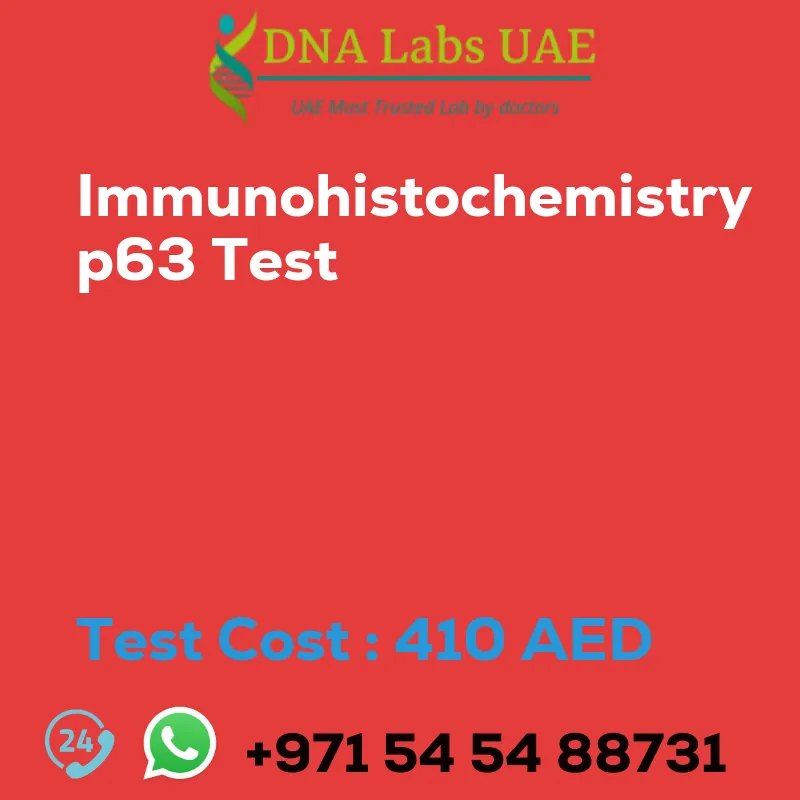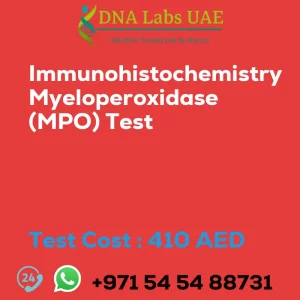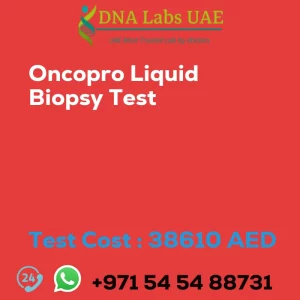IMMUNOHISTOCHEMISTRY p63 Test
Components: Price 410.0 AED
Sample Condition: Submit tumor tissue in 10% Formal-saline OR Formalin fixed paraffin embedded block. Ship at room temperature. Provide a copy of the Histopathology report, Site of biopsy and Clinical history.
Report Delivery: Sample Daily by 6 pm; Report Block: 5 days Tissue Biopsy: 5 days Tissue large complex: 7 days
Method: Immunohistochemistry
Test type: Cancer
Doctor: Oncologist, Pathologist
Test Department:
Pre Test Information: Provide a copy of the Histopathology report, Site of biopsy and Clinical history.
Test Details
The p63 test is an immunohistochemistry (IHC) test used to detect the expression of the p63 protein in tissue samples. p63 is a transcription factor that plays a critical role in the development and maintenance of epithelial tissues, including the skin, prostate, and breast.
The p63 protein is a member of the p53 family and is involved in regulating cell proliferation, differentiation, and apoptosis. It is commonly used as a marker for identifying basal cells in various types of epithelial tissues.
The p63 test involves staining tissue sections with an antibody specific to the p63 protein. The antibody binds to the p63 protein if it is present in the tissue sample. The stained sections are then examined under a microscope to determine the presence and distribution of p63 expression.
The p63 test is commonly used in diagnostic pathology to differentiate between different types of tumors, especially those arising from epithelial tissues. It can help distinguish between basal cell carcinomas and other types of skin cancers, as well as identify different subtypes of breast and prostate cancers.
In addition to its diagnostic applications, the p63 test can also be used in research studies to investigate the role of p63 in various physiological and pathological processes, such as tissue development, wound healing, and cancer progression.
Overall, the p63 test is a valuable tool in immunohistochemistry that helps pathologists and researchers understand the expression patterns and functions of the p63 protein in different tissues and diseases.
| Test Name | IMMUNOHISTOCHEMISTRY p63 Test |
|---|---|
| Components | |
| Price | 410.0 AED |
| Sample Condition | Submit tumor tissue in 10% Formal-saline OR Formalin fixed paraffin embedded block. Ship at room temperature. Provide a copy of the Histopathology report, Site of biopsy and Clinical history. |
| Report Delivery | Sample Daily by 6 pm; Report Block: 5 days Tissue Biopsy: 5 days Tissue large complex : 7 days |
| Method | Immunohistochemistry |
| Test type | Cancer |
| Doctor | Oncologist, Pathologist |
| Test Department: | |
| Pre Test Information | Provide a copy of the Histopathology report, Site of biopsy and Clinical history. |
| Test Details |
The p63 test is an immunohistochemistry (IHC) test used to detect the expression of the p63 protein in tissue samples. p63 is a transcription factor that plays a critical role in the development and maintenance of epithelial tissues, including the skin, prostate, and breast. The p63 protein is a member of the p53 family and is involved in regulating cell proliferation, differentiation, and apoptosis. It is commonly used as a marker for identifying basal cells in various types of epithelial tissues. The p63 test involves staining tissue sections with an antibody specific to the p63 protein. The antibody binds to the p63 protein if it is present in the tissue sample. The stained sections are then examined under a microscope to determine the presence and distribution of p63 expression. The p63 test is commonly used in diagnostic pathology to differentiate between different types of tumors, especially those arising from epithelial tissues. It can help distinguish between basal cell carcinomas and other types of skin cancers, as well as identify different subtypes of breast and prostate cancers. In addition to its diagnostic applications, the p63 test can also be used in research studies to investigate the role of p63 in various physiological and pathological processes, such as tissue development, wound healing, and cancer progression. Overall, the p63 test is a valuable tool in immunohistochemistry that helps pathologists and researchers understand the expression patterns and functions of the p63 protein in different tissues and diseases. |








